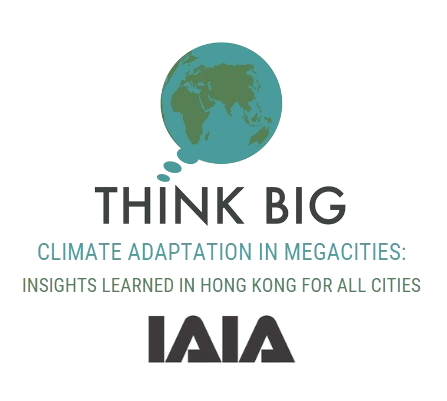
Climate Adaptation in Megacities: Insights Learned in Hong Kong for All Cities consists of five pre-recorded sessions that will be released weekly over a five-week period. Each session delves into a critical aspect of urban climate resilience, focusing on the lessons learned from Hong Kong’s adaptation strategies. The series will culminate in a live Q&A session with available presenters on 27 November, allowing participants to engage with speakers, discuss collaborative opportunities, and outline actionable steps for enhancing climate resilience and adaptation initiatives in megacities.
Please note: Pre-registration is required to join the live Q+A in Week 6. Register here.
The forum features pre-recorded webinars that are freely available below. New webinars will be uploaded weekly, and you can access the videos directly on this page. No registration is required for Weeks 1-5. However, registration is required for the live Q&A session in Week 6.
Learn about the effects of climate change on urban areas and the implications for infrastructure resilience.
Explore the risks posed by typhoons and storms and how early warning services can save lives in urban environments.
Understand the challenges of flooding and rising sea levels, and discover how Hong Kong is adapting its water resource management.
Delve into strategies for addressing urban heat and how nature-based solutions can enhance climate resilience in cities.
Examine the interplay between finance and climate risks, and gain practical tools for integrating Environmental, Social, and Governance (ESG) practices.
A live session for participants to engage with experts and discuss actionable steps for enhancing climate resilience.
Live webinar on 27 November at 12:30-13:45 UTC.
Climate Adaptation in Megacities: Insights Learned in Hong Kong for All Cities addresses the critical challenges posed by climate change and the necessity for cities to adapt. Climate change and human responses play a crucial role in shaping the global economy, society, and environment. The annual UNFCCC Conference of Parties places a disproportionate emphasis on the mitigation of greenhouse gas emissions, and the Paris Agreement has led all major economies to commit to carbon neutrality. However, regardless of how quickly these ambitious goals are achieved, the climate is changing rapidly, and the pace may accelerate well into the future.
Megacities (and all cities) must proactively adapt to current and future climate systems, despite having developed under the influence of past climate conditions. Climate risks pose significant threats to megacities worldwide, and Hong Kong is no exception. These rapidly growing urban centers are home to millions of people and are the economic powerhouses of their respective regions. However, their high population density, complex infrastructure, and coastal location make them particularly vulnerable to the impacts of climate change, such as rising sea levels, more frequent and intense typhoons, flooding, extreme heat events, and public health challenges. As these risks continue to escalate, it is crucial that we conduct thorough impact assessments to understand the potential consequences and develop effective strategies to adapt and build resilience.
This forum brings together experts from various fields to discuss the key climate risks faced by megacities in Hong Kong and to explore potential adaptation solutions that can protect communities, infrastructure, and economies in the face of a changing climate. Impact assessment is a critical tool in the fight against climate change, as it helps cities identify and prioritize the most significant risks they face. By analyzing the likelihood and severity of various climate hazards, exposure, and the vulnerability of different communities and sectors, impact assessments provide a foundation for developing targeted adaptation measures. They also help decision-makers allocate resources effectively and ensure that adaptation efforts are equitable and responsive to the needs of the most vulnerable populations.
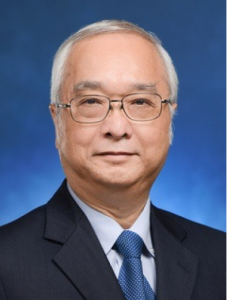
Mr Chin-Wan Tse was appointed the Secretary for Environment and Ecology on 1 July 2022. Mr Tse joined the former Environmental Protection Agency in 1985 which was subsequently reorganized in 1986 to become the current Environmental Protection Department (EPD). Throughout the service with EPD, Mr. Tse had taken up a wide range of duties at professional and senior managerial levels. He was appointed as a Deputy Director of Environmental Protection in 2013 and subsequently as the Under Secretary for the Environment in August 2017. Mr. Tse possesses a broad spectrum of experience in various areas of environmental protection, including law enforcement, computer modelling, environmental impact assessment and cross-boundary cooperation with the Mainland. During his tenure as the Under Secretary for the Environment, he helped spearhead the formulation of policies on air quality, waste management, climate actions and conservation.
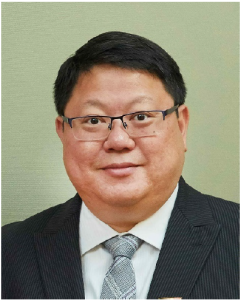
Prof Kenneth Mei Yee Leung is Chair Professor of Environmental Toxicology and Chemistry at City University of Hong Kong, where he also serves as the Director of the State Key Laboratory of Marine Pollution, and Dean of School of Energy and Environment. His research interests encompass marine pollution, ecotoxicology, biodiversity conservation and ecosystem restoration. He has published over 300 peer-reviewed articles in these areas, and has been recognized as Top 2% most cited scientists in the world by Stanford-Elsevier Indicators. He is currently leading the Global Estuaries Monitoring (GEM) Program, under the UN Decade of Ocean Science for Sustainable Development (2021-2030).
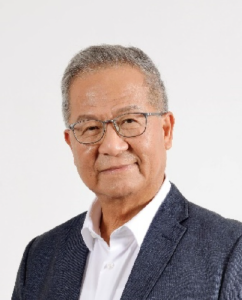
Prof Leung Wing Mo is the former Assistant Director of the Hong Kong Observatory, and an adjunct professor in the Hong Kong Polytechnic University and the Chinese University of Hong Kong. Prof Leung is actively involved in environmental issues and advocating climate actions in Hong Kong. He is currently the spokesperson of the Hong Kong Meteorological Society, member of Board of Directors of the environmental groups “The Green Earth” and “Conservation E3 Foundation” (CE3). He was appointed to various advisory bodies of the government, including the Council for Sustainable Development, and helped formulate the long-term decarbonization strategy in Hong Kong. Prof Leung was the first professional meteorologist in Hong Kong to host local TV weather programs, and is a host of the popular science education program of a local TV channel – TVB.
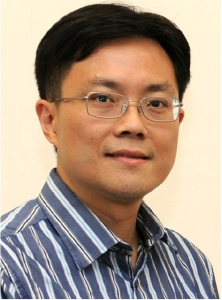
Armstrong Cheng has been working in the Hong Kong Observatory for nearly 30 years, spending most of the time in the forecasting and warning services focusing on service delivery. He led his team to develop dissemination systems, including the popular “MyObservatory” mobile application, to allow weather warning and forecast bulletins to deliver to the public, media and special users instantly. Mr. Cheng also participated in technical commission of the World Meteorological Organization (WMO), a United Nation agency whose mandate covers weather, climate, and water resources, leading expert team members to develop and operate the WMO World Weather Information Service and Severe Weather Information Centre websites that increase the availability of authoritative warnings and information related to extreme and potentially high-impact weather, water, and climate events.
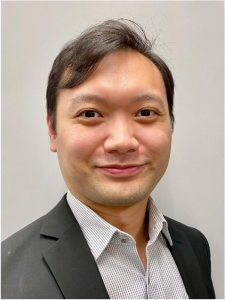
Mr. Tsui is a civil engineer working in the Port Works Division of the Civil Engineering and Development
Department of the Government. To cope with the impacts of climate change, he has contributed to the coastal hazards study and the formulation of improvement works and management measures in
order to safeguard public safety by mitigating the risks in coastal and low-lying areas in Hong Kong.
Furthermore, he is now developing the shoreline management plan to strategically address the risks posed by ongoing sea level rise and changes in storm surge with a view to enhancing long-term resilience of
coastal communities.

Ir Kirstie Cheng is the Senior Engineer/Resources Planning of the Water Supplies Department of HKSAR Government. She joined Water Supplies Department as an engineer in 2009 and has over 15
years of experience in planning, design & construction of waterworks, consultant management,
project administration, water resources planning, and operation & maintenance of water supply and distribution systems. She also has experience in formulation and implementation of the policy for supply of recycled water. Ir Cheng has been working in her current position since 2021. The duties of her present post entail the planning and management of water resources in Hong Kong and overseeing the initiatives on Total Water Management Strategy.
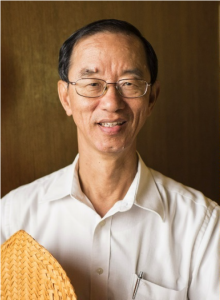
Prof Lam Chiu Ying is a meteorologist by profession, naturalist by hobbies, and conservationist by practice. He was the director of the Hong Kong Observatory 2003-2009 and is the first Hong Kong person elected an Honorary Fellow of the UK Royal Meteorological Society. He actively promotes public awareness about climate change and advocates “simple life-style” as a means to avert climate disaster. He is well-known for not switching on the air-conditioner. He is very concerned about the suffering of the poor under climate change and collaborates with NGOs in finding ways to help the underprivileged cope with summer heat.
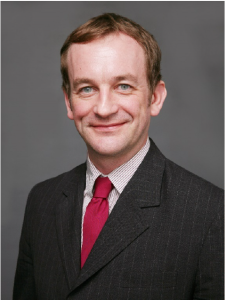
Dr. David Gallacher is a Biodiversity Specialist with over 23 years of post-qualification practical and academic experience. His expertise includes nature-based: planning, conservation, impact assessment, audit and monitoring; ecological: design, surveys and research; transplantation and faunal re-location projects, public consultation, habitat restoration and enhancement. David is the Chairman of the Hong Kong Institute of Environmental Impact Assessment. He gives lectures, seminars and courses throughout the Asia Pacific Region, and has been a key contributor to successful and award winning AECOM publications, including Brownfield Remediation and Redevelopment, Climate:Design, A Book on Design and Planning for the Age of Climate Change, and the Wetland Restoration Handbook.
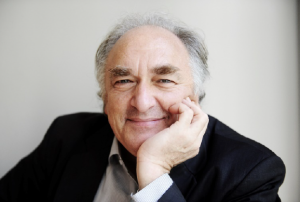
Robert Rubinstein is the chairman and founding partner of TBLI Group Holdings B.V., the world’s leading ESG/impact investing network and authority. Rubinstein founded TBLI in 1998 with the mission of changing the financial system to work for all stakeholders. Under his leadership, TBLI has educated, advised, and connected investors for over 25 years, producing 40 international summits and completing nearly 500 projects. TBLI’s work has influenced over 50 trillion dollars in assets and helped direct nearly 1.3 trillion dollars in investments. Prior to TBLI, Rubinstein had an extensive career in publishing. He founded the first bicycle magazine in the Netherlands, FIETS, in 1981, and Source magazine in 1995, a publication focused on integrating “profits and principles” in business.

Dr. Thomas Tang is an Executive Director in AECOM. He has over 25 years of management consulting and sustainability experience specializing in ESG, green technology, urban planning, climate resilience, stakeholder engagement and low carbon infrastructure design. Between 2014-2017, he set up and ran the award-winning KL Centre for Sustainable Innovation, AECOM’s Asia sustainability hub based in Malaysia. Dr. Tang is a former Vice Chair, Construction Environmental Management Expert Panel, HK BEAM Society, a
member of the Climate Change Business Forum and a member of the HK General Chamber’s Environment & Sustainability Committee. He is an Adjunct Professor at the City University’s School of Energy and Environment.